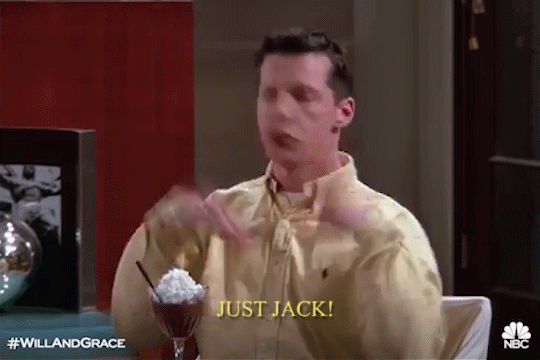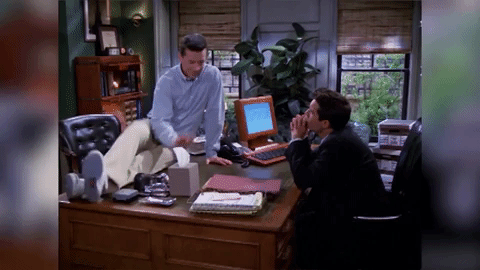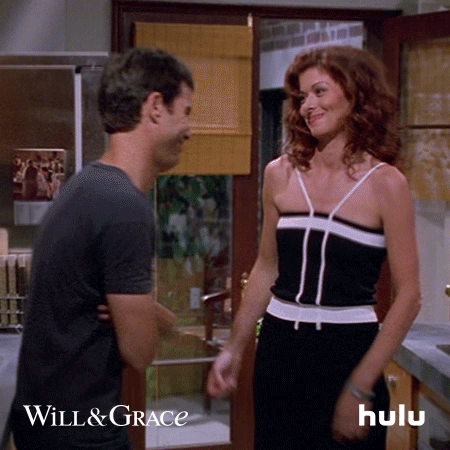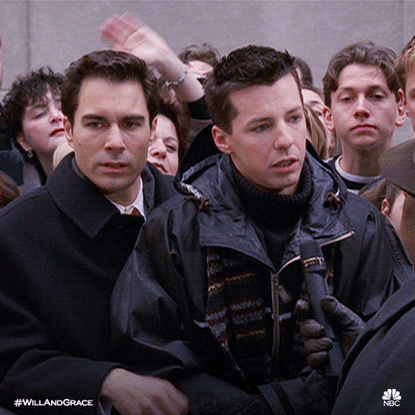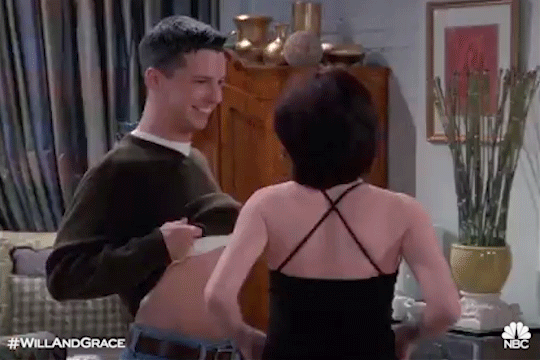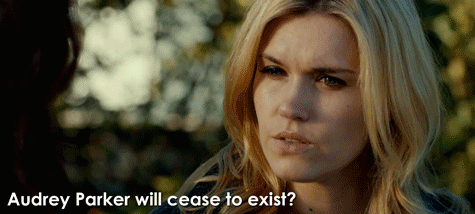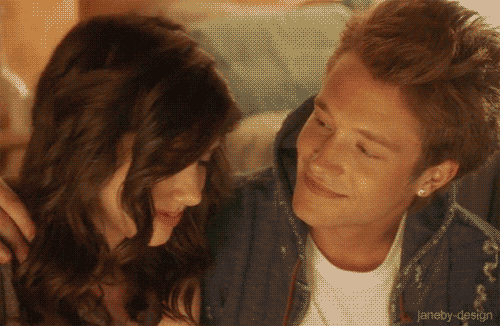The Original "Will and Grace" is still Pride-Month Perfect
Pride month is every month on this iconic show.
*WARNING: THERE WILL BE SPOILERS* Despite the original "Will and Grace" sitcom premiering 20 years ago, it still maintains some of the best qualities about pride month. Anyone who knows me knows I love good LGBT representation, and while there are still some flaws in NBC's 1998 classic (and we'll get there), the show is still magic.
PS. The show is available in full on Hulu and YouTubeTV, if you're interested.
1. Jack McFarlene is a stereotype, but it doesn't define him.
Jack comes into scenes with a song and dance and often with a Cher impression. He is pretty much the stereotypical gay man: flamboyant, flighty, and feminine. I'm not saying this is the right way to represent gay men, but Jack is probably the most in touch with who he his throughout the show. That being said, we get to see a lot more of him than that confident man. For one, we get to see his best friend (Will) feel shame for being seen with him, even though they are both gay. We also find out that despite being secure in his identity, he hasn't told his mom he's gay. He still battles the idea that he isn't a real man. We get to see some levels to him, instead of being the "comic relief" gay man who comes in, flounces, and leaves.
2. Will Truman is a powerful man, and his sexuality is a side dish.
Will is the opposite of Jack most of the time- he is a lawyer with a sarcastic streak and he often doesn't bring up his sexuality. Where Jack basically announces himself, we see Will as more of an extension of his environment. He's wealthy, he has a steady job with clients who know he's out of the closet without caring much, and we get to see him struggle to be in relationships, want to be a father, and talk about a lot more than brunch and boys.
3. Will is Grace's "gay best friend," but it's not the typical YA adaption.
I can't speak for everyone, but the LGBT movies and tv shows marketed towards people my age often deal more with the idea of girls being friends with gay men to get fashion and sex advice. That's well and good, but it doesn't necessarily represent real life. Just because a man is gay does not mean he has to be the extension of a woman.
Will and Grace live together and spend a LOT of time together, but we see him encouraging her career, speaking candidly about the things she is doing wrong, and yes, giving her fashion advice. Their relationship is a give-and-take, as well, where Will is getting advice and being treated like a person instead of an object. They're confused for a married couple a lot.
We see a lot more of Jack being the typical GBF to Karen than Will to Grace.
4. The show tackles some complex issues.
Where to start? Grace debates being in a throuple before throuples were widely accepted. Jack marries Karen's secretary to give her a green card (and unlike other shows, remains in the marriage for a year). I think my favorite issue to come up was Jack and Will protesting NBC (the same network Will and Grace is on) for not allowing two men to kiss on primetime TV. As we can see by the GIF, Will and Jack end up kissing, and the show lasted for seasons after.
In the past, shows were ended by such scenes (example: Ellen Degeneres' sitcom being cancelled one season after she came out on-screen with a content warning for "mature audiences." Shows were cancelled because two men were shown briefly in bed).
The show tackles issues without making them a huge statement piece. If something crazy happens, it happens and doesn't need constant reminding, like other shows.
5. We've come a long way since 1998.
I know I have spent this whole article talking about how awesome this show is, but there are some limitations that are interesting to see to compare how far we've come.
Jack's character, while awesome, is not the most common way to portray gay men anymore. When lesbians come on-screen, they are treated as synonymous with men (Jack calls one couple "fellas" and sings them a lumberjack song).
The way Jack and Will call each other "queer" as an insult is no longer acceptable (and as far as I know, it's even been updated for the newer version).
Hook-up culture is not seen as something sleazy and exclusive to gay people. Relationships are treated better and we get to see gay men and women have the same kinds of scenes, both simple and sexy, as straight people (we would often see Grace in bed with her various boyfriends or extensive kissing, but we don't get to see Will doing the same, most times. As far as I have gotten in the series, we don't even see Jack with a serious boyfriend, just flings).


